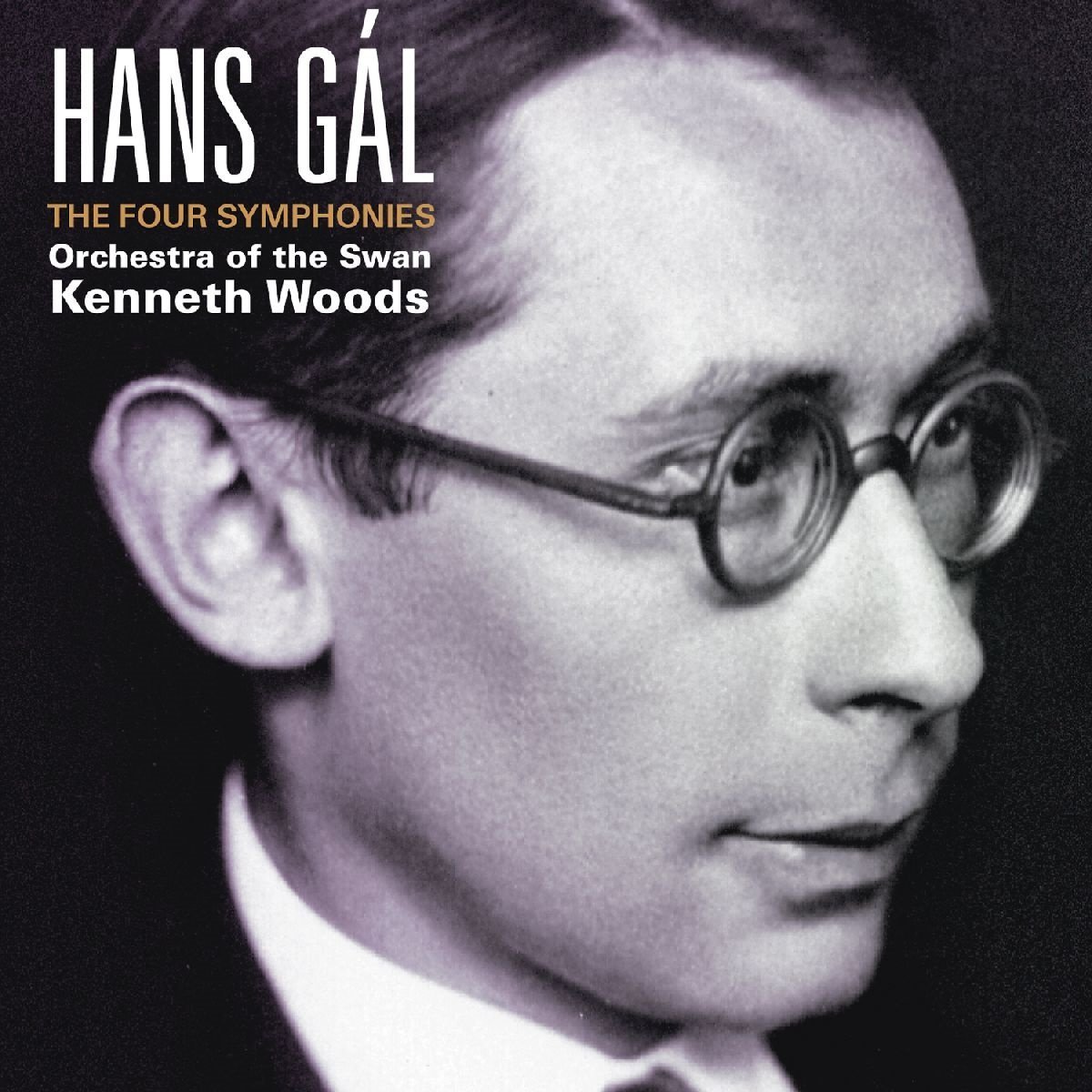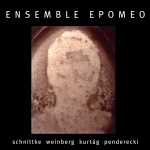2015 was quite a year for me- a year of very, very hard work, a year of ups and downs with some incredible highlights and some moments of rather intense frustration.
I started the year talking- giving a long chat on the Gál symphonies at a gala launch event celebrating the release of Avie’s set of Gáls super cycle and Toccata Press’s release of Gál’s wartime diaries Music Behind Barbed Wire, surely the most important book about classical music published in 2015. It was a great occasion, but launching a CD also means closing a chapter, and recording those symphonies had been a huge, multi-year project for me.
Later that month, the ESO kicked off 2015 in real style, with a sold-out performance of Deborah Pritchard’s superb new violin concerto, Wall of Water with soloist Harriet Mackenzie. Deborah’s piece was the first big commission/signature piece of my time at the ESO, and we were so lucky that she delivered a work that is a fantastic showcase for what the orchestra can and will be. Deborah (who played double bass in the orchestra for the occasion) wrote the piece in response to paintings by Maggi Hambling, who joined the performers and National Gallery curator Colin Wiggins for a discussion following the performance. Everyone seemed to love not only the piece and the performance, but also the format. Perhaps more of our concerts should focus on just one work and really dig more deeply into the music?
The Surrey Mozart Players may not have the name recognition of groups like the BBC National Orchestra of Wales or the ESO, but they’re a capable bunch, and a smart conductor knows it’s well worth keeping an orchestra that can be your laboratory to try new things- witness Kent Nagano staying in Berkeley for so long after his career took off, or Marin Alsopp’s long tenure with the Concordia Orchestra. We’ve had a wonderful partnership for many years now, and the orchestra has come on a great deal in the last couple of seasons. Our January 31st concert was one of the best we’ve done, and an exemplar of why I value working with them. We started off with Gál’s Idyllikon, a wonderful piece that hasn’t been played in decades (one I’m sure I’ll record at some point), then did two great oboe concertos with Victoria Brawn, whose incredible playing attracted a lot of attention on all the Bobby and Hans CDs. I’d never done the Vaughan Williams Oboe Concerto before, and it it’s really a super piece- there’s a lot more going on in his music than people seem to realise. The concert finished off with Sibelius’ Pelleas and Melisdande, a long-time KW favorite, but not an obvious show-stopper. Something really special happened in our performance that night- the silence after the death of Melisande went on for absolutely ages and the audience response was like nothing I’ve ever heard there. It’s so encouraging when you realise the audience can tell something special has happened on stage without the security of a whiz-bang ending.
Next, it was off to the USA for a busy run of concerts with Ensemble Epomeo. We premiered a fantastic new piano quartet by Jay Reise on this tour with pianist George Lopez. This is about the third new piece of Jay’s we’ve done (and there’s another to come in May), and there’s really something to be said for working regularly with a fine composer across several works. We also did the Mahler/Schnittke Piano Quartet. I’d played the movement that’s all Mahler quite a few times, but this was my first go at the Schnittke, and I absolutely loved it. After the performances, the Newburyport Festival asked me to write a third and/or fourth movement to accompany the two existing ones. Writing in response to Mahler and Schnittke is both a terrifying and irresistible prospect. One of the things I always say I love about the trio is playing pieces over and over again- most things I conduct only once with an orchestra, then must leave for many years. Immersing myself in the Beethoven String Trios since 2008 has been an incredible musical education, and it was great to tour the Weinberg, which we recorded the year before. It starts with a really awkward cello solo- one of those things that sounds really simple but is tricky and unforgiving. Once you’ve learned it, it’s the sort of thing you want to play a lot. The weather on this trip was horrible- our last concert was cancelled and when we flew out of Boston the next day, the entire city seemed literally on the verge of economic and social collapse. Walking around residential neighborhoods with snow piled 10 feet up on either side of the road one saw quite a few people on the edge.
Once safely back in the UK, it was time to pick up the baton again for a concert I’ve been wanting to do for many, many years. Regular Vftp readers will know I’m fascinated by the musical roots of the Mozart Requiem, and on this concert we went whole hog and performed the Mozart alongside most of the major works that helped inspire it. We were very lucky to have a superb team of soloists and a first rate chorus, the Hereford-based Academia Musica for our performance in beautiful Hereford Cathedral and the repeat performance in St John’s Smith Square. As with the Wall of Water concert, the format was a bit unusual, with me sort of narrating the first half of the concert with demonstrations and excerpts alongside performances of the complete works, and a full performance of the Mozart on the second half. Fortunately, people seemed to really love the format (you can read one review here), and there is surely the basis of a really fascinating CD/DVD in the project once the orchestra and I have had a few more years to find our own distinctive sound in this repertoire.
The cello didn’t stay in the case long this time, as my Epomeo colleagues followed closely behind me for performances the day before and after the Mozart concert here in the UK. In addition to the Weinberg and Beethoven, we gave our first performances of John McCabe’s String Trio. Tragically, John died just days before these performances after a long fight with brain cancer- his illness robbing us of the chance to work on the piece with him. It’s not always a good idea to be too emotional while you’re onstage, but I really was torn to pieces inside from the first rehearsal right through the last performance- David and Diane, my wonderful colleagues, were very patient with me. John was one of music’s brightest lights- I felt very blessed to know him, and very sad to only know him a short time. John’s piece is one of the great works for trio- it has been recorded once, but we’re determined to put our stamp on it in the studio soon. This was a hugely exhausting month for me, with challenging trio concerts flanking a complex ESO concert involving soloists, choir, narration and a lot of stage management. It all happened at a time when the orchestra was down two staff members, too. Part of a conductor’s job is to step in when things go wrong in the administration, and there has been a lot of that since I started in the gig. I survived February, but only just!
Next up in March was a run of performances of Schoenberg’s Verklarte Nacht (and other fun stuff) on series’ run by violinist David LePage and cellist Matthew Sharp. It was an absolute joy to return to a piece I’ve put so much work into in recent years with such incredible colleagues. Dave and his wife Cath have built one of the most fantastic series’ in the country in Harborough– the atmosphere there is just incredible. Matthew is just rolling up his sleeves at St Mary’s, but that’s going to be a great centre for music with him guiding things- it’s a gorgeous church.
Another gorgeous venue is Menuhin Hall- the next SMP concert there with Mark Bebbington surely profited from their superb Steinway. Mark played Mozart’s bittersweet final concerto very beautifully, and we finished up with Schubert 6, a piece I’ve wanted to do for a long time. It’s a work that needs some thinking about- I’ve heard it done so charmlessly so many times! Thankfully, the orchestra were open to my slightly bonkers (but respectful and affectionate) approach to the piece.
Finally, the first quarter of 2015 ended with another ESO concert, as the orchestra returned to Elgar Concert Hall in Birmingham for a very standard Mozart-Mendelssohn-Beethoven concert. Programmes like these really test any orchestra. It was one of those concerts that seems to point in many directions at once- I did say this was a year of ups and downs and becoming the orchestra we want to be will take time. Working with Tamsin Waley-Cohen, our soloist, is always a joy. There were certainly plenty of thrills and chills, and when we finished Beethoven’s most exuberant finale and walked outside into the brilliant spring sunshine, it felt like springtime for the orchestra.


Recent Comments